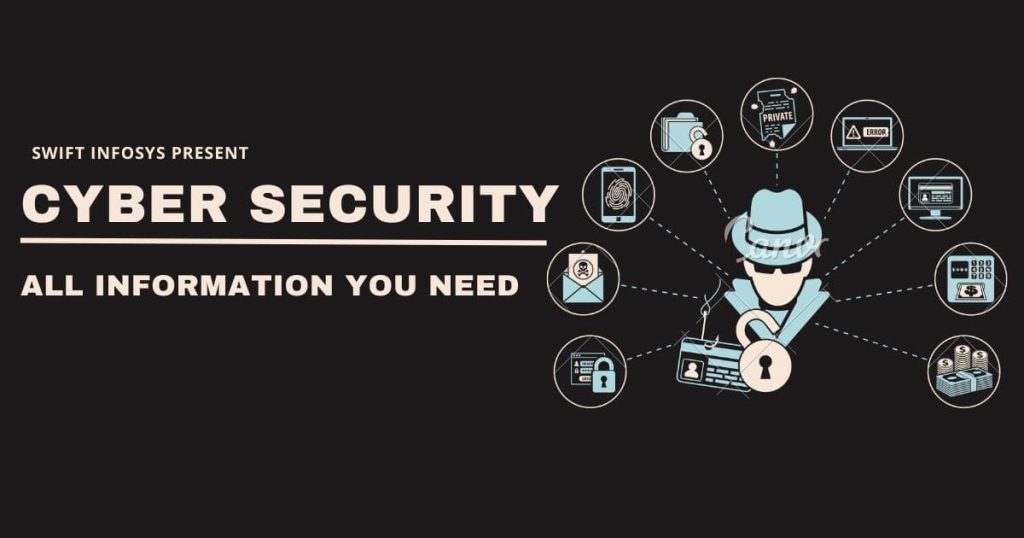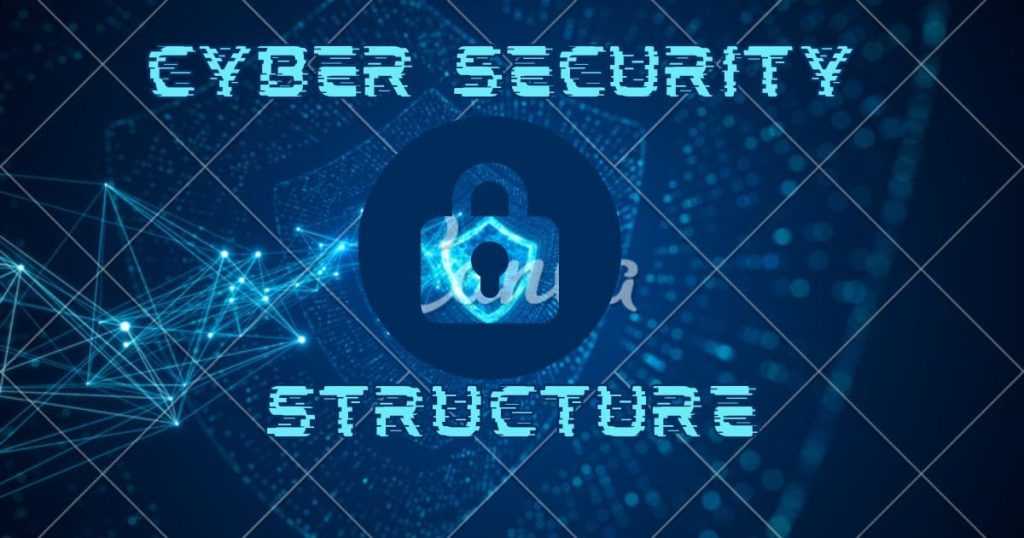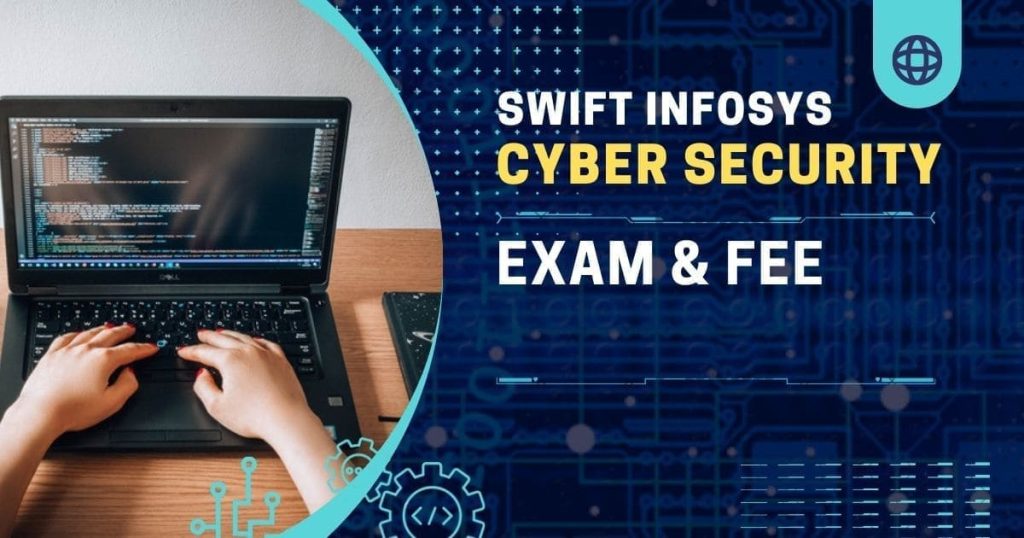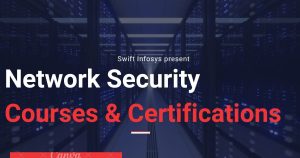As cyber threats continue to evolve, staying ahead of the curve is crucial for safeguarding your digital assets. At Swift Infosys, we understand the importance of top-tier cyber security training to equip individuals and organizations with the knowledge and skills needed to combat these threats effectively. In this article, we’ll explore the best cyber security training options in the U.S. Empowering you to enhance your cyber security posture and protect what matters most.

Unlocking Excellence: The Best Cyber Security Training in the U.S.
When it comes to cyber security training, excellence is non-negotiable. That’s why Swift Infosys has curated a list of the top training providers in the U.S. that consistently deliver outstanding results. Here are our recommendations:
1. Swift Infosys
Swift Infosys is globally recognized for its unparalleled cyber security training programs.
With a focus on hands-on learning and real-world scenarios, Swift equips students with practical skills to tackle cyber threats head-on.
From entry-level courses to advanced certifications, Swift offers a comprehensive curriculum tailored to meet the needs of cyber security professionals at every level.
2. EC-Council
EC-Council is a trailblazer in the field of cyber security certification training.
Offering a diverse range of programs, including the Certified Ethical Hacker (CEH) and Certified Network Defender (CND) courses, EC-Council empowers individuals to become proficient cyber security practitioners.
With a commitment to excellence and innovation, EC-Council sets the standard for cyber security training worldwide.
3. CompTIA
CompTIA is a trusted name in the IT industry, known for its vendor-neutral certifications.
With certifications like Security+, CySA+, and CASP+, CompTIA provides a solid foundation in cyber security fundamentals.
Whether you’re a newcomer to the field or a seasoned professional, CompTIA offers certification pathways to suit your expertise level and career goals.
4. Offensive Security
Offensive Security is synonymous with cutting-edge penetration testing training.
Their flagship certification, the Offensive Security Certified Professional (OSCP), is widely regarded as one of the most challenging and prestigious certifications in the industry.
With a focus on practical skills and real-world scenarios, Offensive Security prepares individuals to think like hackers and identify vulnerabilities before they can be exploited.
At Swift Infosys, we believe that investing in the best cyber security training is essential for staying ahead of cyber threats and protecting your valuable assets. Whether you choose SANS Institute, EC-Council, CompTIA, or Offensive Security, you can trust that you’re receiving world-class education and preparation for a successful career in cyber security.
Don’t wait until it’s too late. Empower yourself with the best cyber security training in the U.S. and take control of your digital security today. Visit swiftdigitalinfosys.com to learn more about our comprehensive cyber security solutions and how we can help you achieve your security goal Cyber Security Guide to Course Structure | Best Cyber Security Training in the U.S.
Cyber Security Guide to Course Structure | Best Cyber Security Training in the U.S.
Embarking on a journey to become a cyber security expert requires a solid understanding of course structures. At Swift Infosys, we recognize the importance of a well-designed curriculum in shaping the next generation of cyber defenders. In this article, we’ll delve into the essential elements of cyber security course structures, guiding you towards selecting the best cyber security training in the U.S. for your career aspirations.

Decoding Cyber Security Course Structure
Understanding the intricacies of cyber security course structures is essential for choosing the right program. Let’s explore the key components that make up an effective cyber security curriculum:
1. Foundational Concepts
Every cyber security course should start by laying a solid foundation of fundamental concepts. This includes understanding the principles of information security, common cyber threats, and basic terminology.
Foundational modules may cover topics such as cryptography, network security, and risk management, providing students with a broad understanding of the cyber security landscape.
2. Specialised Tracks
To cater to diverse career paths and interests, cyber security courses often offer specialised tracks or concentrations. These tracks allow students to delve deeper into specific areas of cyber security, such as ethical hacking, digital forensics, or cloud security.
Specialised modules provide hands-on experience and in-depth knowledge relevant to the chosen track, preparing students for specialised roles in the field.
3. Hands-on Labs and Practical Exercises
Theory alone is not sufficient to master cyber security skills. Practical experience is essential for translating knowledge into real-world scenarios. As such, effective course structures incorporate hands-on labs and practical exercises.
Hands-on labs simulate cyber security challenges and allow students to apply theoretical concepts in a controlled environment. Practical exercises reinforce learning and enhance problem-solving skills, preparing students for the challenges they’ll face in their careers.
4. Industry-Relevant Certifications
Many cyber security courses offer the opportunity to earn industry-recognized certifications upon completion. These certifications validate the skills and knowledge acquired during the course and enhance students’ credibility in the job market.
Common certifications include CompTIA Security+, Certified Ethical Hacker (CEH), and Certified Information Systems Security Professional (CISSP). Course structures often include dedicated preparation modules for these certifications, ensuring students are well-prepared to pass the exams.
5. Capstone Projects and Practical Assessments
A capstone project or practical assessment is often the culmination of a cyber security course, allowing students to showcase their skills and knowledge in a real-world scenario.
Capstone projects may involve designing and implementing a security solution, conducting a penetration test, or analysing a cyber security incident. These projects provide valuable hands-on experience and demonstrate students’ readiness for the workforce.
Choosing the best cyber security training in the U.S. requires careful consideration of the course structure and curriculum. By understanding the essential components of cyber security course structures, you can make an informed decision and embark on a path towards mastering cyber security.
At Swift Infosys, we’re committed to empowering individuals with the knowledge and skills needed to succeed in the ever-evolving field of cyber security. Visit our website to explore our comprehensive cyber security training programs and take the first step towards a rewarding career in cyber security.
Mastering Cyber Security: A Deep Dive into Course Curriculums for the Best Training in the U.S.
In today’s digitally connected world, cyber security has become more critical than ever. As cyber threats continue to evolve, organizations need skilled professionals equipped with the latest knowledge and techniques to defend against cyber attacks. Choosing the best cyber security training in the U.S. is the first step towards a successful career in this dynamic field. In this article, we’ll explore the intricacies of cyber security course curriculums to help you make informed decisions and unlock your potential in cyber security.

Navigating Cyber Security Course Curriculums
A well-designed cyber security course curriculum should provide a comprehensive and structured approach to learning, covering a wide range of topics essential for understanding and mitigating cyber threats. Let’s delve deeper into the components of an effective cyber security course curriculum:
1. Cyber Security Fundamentals
A solid understanding of cyber security fundamentals is essential for laying the groundwork for more advanced topics. Course curriculums typically include modules on cybersecurity principles, cybersecurity frameworks, and regulatory compliance standards.
By mastering the fundamentals, students develop a solid foundation upon which to build their expertise in more specialized areas of cyber security.
2. Secure Software Development
As software vulnerabilities continue to be a significant target for cyber attacks, understanding secure software development practices is crucial. Course curriculums may cover topics such as secure coding principles, software security testing techniques, and secure software development lifecycle (SDLC) methodologies.
Practical exercises and case studies allow students to apply secure software development principles in real-world scenarios, helping them identify and mitigate security risks in software applications.
3. Network Security
Network security is a critical aspect of cyber security, focusing on protecting the integrity, confidentiality, and availability of data transmitted over networks. Course curriculums may include modules on network architecture, protocols, firewalls, intrusion detection systems (IDS), and virtual private networks (VPNs).
Hands-on labs and practical exercises provide students with opportunities to configure and secure network infrastructure, detect and respond to network-based attacks, and implement network security controls effectively.
4. Cloud Security
With the increasing adoption of cloud computing, knowledge of cloud security best practices is essential for protecting cloud-based resources and data. Course curriculums may include modules on cloud security fundamentals, cloud architecture and deployment models, and cloud security controls and compliance.
Hands-on labs and practical exercises provide students with the opportunity to explore cloud security technologies and techniques, preparing them to secure cloud environments effectively.
5. Incident Response and Cyber Defense
Effective incident response and cyber defense capabilities are essential for minimizing the impact of cyber attacks and maintaining the resilience of organizations’ cyber security posture. Course curriculums may include modules on incident response planning and management, threat intelligence analysis, and security operations center (SOC) operations.
Practical exercises and simulated scenarios allow students to develop hands-on experience in detecting, responding to, and mitigating cyber security incidents, preparing them to effectively defend against cyber threats in real-world environments.
6. Ethical and Legal Considerations
Ethical and legal considerations are integral aspects of cyber security, guiding professionals’ conduct and decision-making processes. Course curriculums may include modules on ethical hacking principles, legal frameworks governing cyber security practices, and ethical considerations in vulnerability assessment and penetration testing.
By gaining knowledge of ethical and legal aspects of cyber security, students can ensure they adhere to professional standards and legal requirements in their roles as cyber security practitioners.
Choosing the best cyber security training in the U.S. requires careful consideration of the course curriculum to ensure it covers all essential aspects of cyber security. By understanding the key components of cyber security course curriculums, you can make informed decisions and embark on a path towards mastering cyber security.
At Swift Infosys, we’re committed to providing industry-leading cyber security training programs designed to equip individuals with the skills and knowledge needed to excel in the field. Explore our comprehensive course offerings today and take the first step towards a rewarding career in cyber security.
Cyber Security Course Exams & Fees | Best Cyber Security Training in the U.S
Embarking on a journey to become a cyber security professional requires more than just completing coursework. Understanding the examination process and associated fees is crucial for planning your cyber security education journey effectively. At Swift Infosys, we recognize the importance of transparency in cyber security training, which is why we’re here to demystify cyber security course exams and fees in the U.S. Let’s dive in and uncover the essential details you need to know.

Navigating Cyber Security Course Exams & Fees
When pursuing cyber security training, it’s essential to understand the examination process and associated costs to make informed decisions. Here’s a breakdown of what you can expect:
1. Examination Structure
Cyber security course exams typically follow a structured format designed to assess students’ knowledge and skills in the field. Examinations may include multiple-choice questions, practical assessments, and scenario-based simulations.
Depending on the certification or course provider, exams may be proctored either in-person or online. Proctored exams help ensure the integrity of the assessment process by verifying the identity of candidates and monitoring exam sessions for any suspicious activity.
2. Certification Fees
Obtaining a cyber security certification often requires passing one or more exams administered by certification bodies such as CompTIA, EC-Council, or (ISC)². These certification exams typically come with associated fees that vary depending on the certification level and provider.
Certification fees may range from a few hundred to several thousand dollars, depending on factors such as the complexity of the exam, the reputation of the certification, and the resources provided by the certification body.
3. Training Course Fees
Enrolling in a cyber security training course is an essential step in preparing for certification exams. Course fees can vary widely depending on factors such as the course provider, delivery format (e.g., in-person, online), course duration, and included resources.
Some training providers offer bundled packages that include both training courses and
certification exam vouchers at a discounted rate. These packages can provide cost savings and streamline the certification process for students.
4. Retake Fees
In the event that a student does not pass a certification exam on their first attempt, they may have the option to retake the exam after a waiting period. However, retaking exams typically incurs additional fees, which can vary depending on the certification body and retake policy.
It’s essential for students to budget for potential retake fees when planning their certification journey and to take advantage of available resources, such as practice exams and study materials, to increase their chances of success on the first attempt.
5. Additional Costs
In addition to certification and training course fees, students should also consider other potential costs associated with cyber security education. These may include the purchase of study materials, textbooks, lab equipment or access, and travel expenses for in-person training sessions or exams.
By accounting for these additional costs in their budgeting process, students can ensure they have the resources they need to fully engage with their cyber security training and maximize their chances of success.
Understanding the examination process and associated fees is essential for anyone pursuing cyber security training and certification. By familiarizing yourself with the structure of cyber security course exams and budgeting for associated costs, you can make informed decisions and set yourself up for success in your cyber security career.
At Swift Infosys, we’re committed to providing industry-leading cyber security training programs designed to prepare students for certification exams and excel in the field. Explore our comprehensive course offerings today and take the first step towards becoming a certified cyber security professional.
With this information, you can approach your cyber security training journey with confidence, knowing exactly what to expect and how to plan accordingly.
Cyber Security Course Jobs & Salary Insights | Best Cyber Security Training in the U.S.
Embarking on a cyber security training journey opens doors to a myriad of job opportunities in a rapidly growing field. Understanding the job landscape and salary potential is essential for making informed decisions about your career path. In this article, we’ll explore the exciting world of cyber security course jobs and salary prospects, guiding you towards the best cyber security training in the U.S. and beyond.
Exploring Cyber Security Course Jobs & Salary Insights
As cyber threats continue to proliferate, the demand for skilled cyber security professionals has never been higher. Let’s delve into the diverse range of job roles and salary prospects available to cyber security graduates:

1. Cyber Security Analyst
Cyber Security Analysts play a crucial role in protecting organizations from cyber threats by monitoring networks, detecting security incidents, and implementing security measures.
According to the U.S. Bureau of Labor Statistics (BLS), the median annual wage for information security analysts was $103,590 as of May 2020, with opportunities for higher earnings based on experience and qualifications.
2. Ethical Hacker/Penetration Tester
Ethical Hackers, also known as Penetration Testers, are responsible for identifying and exploiting vulnerabilities in systems and applications to help organizations improve their security posture.
The average salary for Ethical Hackers in the U.S. ranges from $70,000 to $130,000 per year, depending on factors such as experience, certifications, and employer.
3. Security Architect
Security Architects design and implement secure IT solutions to protect organizations’ information assets from cyber threats. They develop security frameworks, conduct risk assessments, and recommend security controls.
According to Indeed, the average salary for Security Architects in the U.S. is around $130,000 per year, with opportunities for higher earnings in industries such as finance, healthcare, and government.
4. Cyber Security Consultant
Cyber Security Consultants provide expert guidance and advice to organizations on cyber security strategy, compliance, and risk management. They assess security risks, develop mitigation plans, and assist with regulatory compliance efforts.
The salary for Cyber Security Consultants varies depending on factors such as experience, specialization, and geographic location, with average salaries ranging from $80,000 to $150,000 per year.
5. Chief Information Security Officer (CISO)
CISOs are senior-level executives responsible for overseeing an organization’s entire cyber security strategy and operations. They develop security policies, lead incident response efforts, and ensure compliance with regulatory requirements.
According to Salary.com, the average annual salary for CISOs in the U.S. is approximately $240,000, with top earners commanding salaries upwards of $400,000 or more.
The field of cyber security offers a wealth of rewarding job opportunities and competitive salaries for qualified professionals. By investing in the best cyber security training in the U.S., you can position yourself for success in this rapidly growing industry.
At Swift Infosys, we’re committed to providing industry-leading cyber security training programs designed to equip individuals with the skills and knowledge needed to excel in the field. Explore our comprehensive course offerings today and take the first step towards a rewarding career in cyber security.
With the right training and expertise, you can unlock a world of opportunities in cyber security and make a significant impact in protecting organizations from cyber threats. Start your journey today and pave the way for a successful and fulfilling career in cyber security.







Informative Content for all